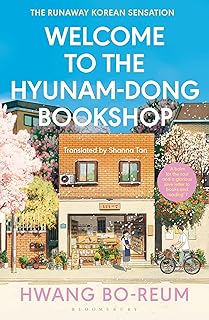South Korea’s cultural influence has been on the rise since the 1990s, spurred by the success of movies like Jurassic Park, which prompted the government to promote its cultural exports. While K-pop and TV shows have gained global popularity, Korean literature, or K-lit, is now in the spotlight. People like Ana Paula Lage in Sydney find solace in exploring Korean books as a way to delve into different cultures and emotions.
The surge in Korean literature’s global appeal is part of the broader Hallyu wave, which encompasses various cultural exports from music to skincare routines. Han Kang’s Nobel Prize win in Literature has further elevated the status of K-lit internationally, shedding light on the richness of Korean storytelling traditions.
For many readers like Lage, the allure of Korean literature lies in its ability to transport them to new worlds and offer profound insights into the human experience. The diverse themes and genres found in Korean novels resonate with audiences around the world, thanks in part to government initiatives to translate these works into multiple languages.
As Korean books find their way onto shelves worldwide, they provide a unique window into Korean society, blending historical contexts with contemporary critiques. The success of novels like Pachinko and Greek Lessons in Australia underscores the growing appetite for K-lit among readers seeking both entertainment and cultural enrichment.
The translation of Korean novels into English and other languages is a strategic move by the Korean government to enhance its soft power and promote cultural diplomacy. The Literature Translation Institute of Korea has played a crucial role in facilitating the translation of over 2,000 books, making Korean literature more accessible to global audiences.
While K-pop and K-dramas have achieved rapid success on the global stage, the appeal of K-lit lies in its nuanced storytelling and exploration of universal themes. Authors like Han Kang delve into Korea’s traumatic past and contemporary societal issues, offering readers a deeper understanding of the human condition.
Bookshops like Gertrude and Alice in Sydney have embraced Korean Literature Week, showcasing the diverse range of genres and styles found in K-lit. From magical realism to dark and quirky narratives, Korean novels captivate readers with their unique blend of storytelling that appeals to a wide audience.
As Korean literature gains momentum in the literary world, it serves as a bridge for cultural exchange and understanding between nations. The fusion of personal narratives with universal themes in Korean books resonates with readers globally, fostering empathy and appreciation for Korea’s rich cultural heritage.
With the continued support for translation initiatives and cultural promotion, Korean literature is poised to make a lasting impact on the global literary landscape. The quirky, dark, and peculiar narratives found in Korean novels offer a refreshing alternative for readers seeking fresh perspectives and engaging storytelling experiences.
📰 Related Articles
- Young Global Innovators Dive into Hangzhou’s Tech World for Cultural Exchange
- Urgency for Sustainable Coffee Sourcing Amid Global Consumption Rise
- US-Iran Conflict Escalates: Global Concerns Rise Over Military Strikes
- UAE’s Rise as Global Education Hub Attracts International Students
- Türkiye’s Global Education Rise: Blending Heritage with Vision






